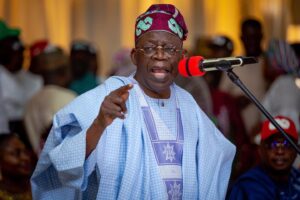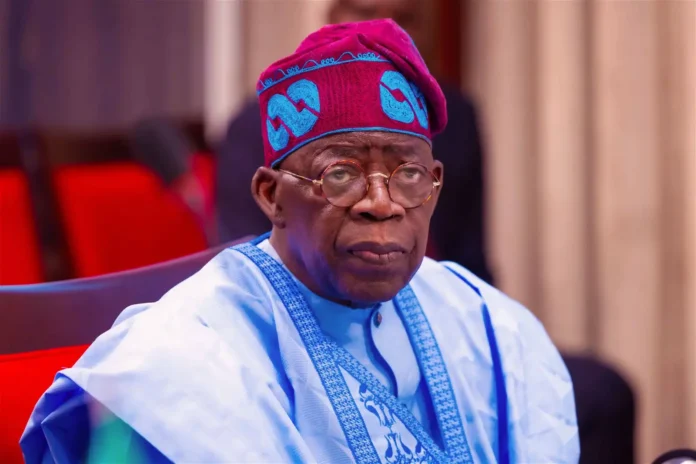In a stern rebuke to state governors, President Bola Tinubu has urged traditional rulers and Nigerians to demand accountability from their state leaders for the lack of development at the local government level. Addressing the Arewa Consultative Forum (ACF) at the Presidential Villa, Tinubu expressed disappointment with how state resources are being deployed, highlighting the disconnect between state capitals and the grassroots.

“We are running a constitutional democracy. I will appeal to you to summon the governors,” Tinubu stated emphatically. “They must urgently consider the needs of the local people. People reside in the local communities. That is where they work, farm, and live.”
Tinubu questioned the accountability mechanisms in place, asking, “Who is being held accountable for the performance of the 774 local governments? Maybe we should look at recalibrating. What was good four years ago may not be good today.”
The President’s admonition comes at a time when state governments are flush with increased revenue allocations following the removal of the fuel subsidy in May 2023. In October 2023 alone, states shared over N900 billion, a staggering 69% increase from the pre-subsidy removal era.
The President’s remarks underscore growing concerns over the ineffectiveness of the 774 local government areas across the country in delivering essential services and driving development. Despite the constitutional allocation of funds to these grassroots administrative units, their impact on improving living standards and infrastructure remains limited.
With the 2024 approved budget allocating over N5 trillion to states, an increase of N2.24 trillion from 2023, Tinubu emphadized the urgent need for the governors to prioritize grassroots development and ensure the judicious utilization of these funds.
“When we want the votes, we go to the locals; when we get the votes, we move to and focus on Abuja,” Tinubu lamented, highlighting the tendency of political leaders to neglect local communities after elections.
Beyond the issue of development, the President also expressed concern over the alarming rate of out-of-school children in parts of Nigeria, describing the situation as “unacceptable.” With recent UNICEF estimates putting the number of out-of-school children in Nigeria at a staggering 20 million, Tinubu emphasized the pivotal role of education in combating poverty and driving economic progress.
In the face of these challenges, Tinubu called for national unity and continued support for his administration as it grapples with decades-long issues confronting the populace. He commended the efforts of the National Security Adviser, Nuhu Ribadu, in addressing the security challenges plaguing the nation, pledging to “put our heart and soul into ensuring that Nigeria is secure and its citizens are protected.”
As Nigerians brace for the long-awaited impact of the Renewed Hope Agenda, Tinubu’s candid assessment underscores the urgency of bridging the governance gap between state capitals and local communities. With increased resources at their disposal, state governors now face heightened scrutiny to translate these funds into tangible developmental outcomes that uplift the lives of Nigerians at the grassroots level.




